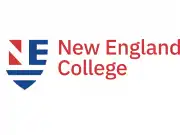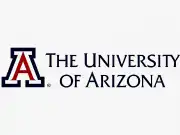Bachelor's degree programs in the USA
- Overview of Bachelor's Programs in the USA
- Features of Bachelor's Programs in the USA
- Advantages of Bachelor's Programs in the USA
- Disadvantages of Bachelor's Programs in the USA
- Admission Requirements for Bachelor's Programs in the USA
- Application Documents for Bachelor's Programs in the USA
- Job Search After a Bachelor's Program in the USA
- FAQ – Frequently Asked Questions

Bachelor of Arts - Classical Studies
Drew UniversityClassical studies, encompassing the examination of ancient Greek and Roman cultures and their enduring influence, constitutes the cornerstone of a liberal arts curriculum. Numerous students consider it a suitable combination for a double major, aligning with philosophy, art history, English, religion,…

Bachelor of Fine Arts - Photography
New England CollegeA job as a photographer, photo retoucher, or graphic artist can be attained by obtaining a bachelor's degree in photography. Students majoring in photography in a BFA program acquire the skills and knowledge needed for a variety of creative professions.
Digital design technologies and design…

Bachelor of Arts - Politics
New England CollegeStudents and professors examine the political, policy, and constitutional opportunities and challenges we all face in NEC's Bachelor of Arts in Politics program. Politics majors will learn about the background of those issues and the main points of contention, create evidence-based strategies for…

Bachelor of Arts - Psychology
New England CollegeThe faculty members of NEC's Bachelor of Arts (BA) in Psychology program are enthusiastic about topics such as relationships, mental health, motivation, and human development. In our supportive setting, they'll provide you lots of chances to develop and get a deeper awareness of both yourself and…

Bachelor of Arts - Sport and Recreation Management
New England CollegeStudents who complete NEC's Bachelor of Arts (BA) in Sport and Recreation Management program are prepared for graduate school or for jobs managing organizations in the sport, recreation, and leisure sectors. This program teaches students to apply fundamental qualitative and quantitative research techniques,…

Bachelor of Arts - Theatre
New England CollegeYou can prepare for a career in and outside the creative arts by earning a BA in theater. The many artistic and technical endeavors in theater are a direct result of the abilities that can be developed through an undergraduate program. However, these skills are easily transferable to other domains…

Bachelor of Arts - Women’s and Gender Studies
New England CollegeOne might obtain an extensive understanding of the historical and cultural factors influencing gender and social inequality by earning a degree in Women's Gender Studies. The liberal arts curriculum that usually frames the degree can aid students in developing critical thinking, writing, and presentation…

Bachelor of Science - Business Administration (Accounting)
The University of Arizona, USAEnroll in the University of Arizona's Accounting major to start above if you have a keen interest in money and information analysis. Gain the abilities required for a prosperous accounting profession as a manager accountant, CPA, CFO, or business analyst, assisting companies in making the best financial…

Bachelor of Science - Aerospace Engineering
The University of Arizona, USAAerospace engineers enhance aircraft design and further space exploration. One of the most robust industries in the US is aerospace and military; Arizona plays a big role in this, and the University of Arizona is a key source of aerospace engineers. The Bachelor of Science program in Aerospace Engineering…

Bachelor of Science - Applied Biotechnology
The University of Arizona, USAStudents pursuing a B.S. in Applied Biotechnology learn how to apply chemical and biological processes to solve the most important problems facing sustainability, health, and food production worldwide. A strong foundation in microbiology, plant biology, food science, and nutrition will be developed,…
Briefly About Bachelor's Degree Programs in the USA
Obtaining higher education in the United States opens wide opportunities for career growth and personal development. Bachelor's programs at American universities are considered among the most prestigious in the world due to their flexible learning system, modern methodologies, and high level of graduate preparation.
A bachelor's degree in the USA is the first stage of higher education, typically lasting 4 years (in some cases 3.5-5 years depending on the program and student performance). Upon completion, graduates receive the following diplomas:
- Bachelor of Arts (BA) — бакалавр искусств
- Bachelor of Science (BS) – бакалар наук
In addition to standard BA and BS programs, many universities offer specialized degrees:
- Bachelor of Fine Arts (BFA) — for creative specialties
- Bachelor of Engineering (BEng) — in technical universities
- Bachelor of Business Administration (BBA) — in business schools
The average age of bachelor's students in the USA is 18-22 years, though many institutions actively accept "adult" students (25+ years), offering them flexible learning formats.
Key characteristics of bachelor's programs in the USA:
- Program flexibility – students can choose courses from different fields.
- Practical orientation – many courses include internships and projects.
- International recognition – diplomas from American universities are valued worldwide.
Features of Bachelor's Programs in the USA
The American education system differs from Russian and European systems. Here are the key features:
- Liberal Arts Education
In the first two years, students study general education disciplines (history, mathematics, natural sciences), then choose a specialization (major). This allows changing direction if interests evolve. - Credit System (Credit Hours)
To earn a diploma, students must complete 120-130 credits (1 credit ≈ 15-16 hours of study). - Emphasis on Independent Work
Students learn to analyze information, work in teams, and present their projects. - Double Major Opportunity
Students can simultaneously study two disciplines, for example economics and computer science. - Tutoring and Mentoring System
Most US universities provide:- Personal academic advisor
- Mentor from upperclassmen
- Career counselor
- International student coordinator
- Undergraduate Research Opportunities
Many bachelor's students participate in:- Research projects under professor supervision
- Interdisciplinary research
- Publications in academic journals
- Conferences and symposiums
Advantages of Bachelor's Programs in the USA
- High quality education – 8 of the top 10 universities worldwide are in the USA (according to QS World University Rankings).
- Wide program selection – over 4,000 institutions offer hundreds of specializations.
- Internships at leading companies – Google, Apple, Microsoft collaborate with universities.
- Flexibility and individualized approach – students can change specializations and select courses.
- International environment – students from different countries exchange experiences.
- Comprehensive student support – help centers, legal services, career placement offices
- Unique exchange programs – students can study abroad for a semester/year or earn dual degrees with partner universities
Disadvantages of Bachelor's Programs in the USA
- High cost – tuition at top universities ranges from $30,000–80,000 per year.
- Competitive admissions – requires SAT/ACT scores and high English proficiency (TOEFL/IELTS).
- Long adaptation period – different education system and culture may cause stress.
- Restrictions for international students – must obtain work visa (H-1B) after graduation.
- Additional high expenses – beyond tuition, must account for health insurance, study materials, transportation, food and housing
- Rigorous academic requirements – many universities mandate attendance, strict deadlines, regular assessments
Admission Requirements for Bachelor's Programs in the USA
To enroll in an American university, applicants must provide:
- High school diploma (GPA minimum 3.0/4.0).
- SAT (minimum 1200) or ACT (minimum 24) scores.
- English proficiency certificate: TOEFL (minimum 80) or IELTS (minimum 6.5).
- Motivation letter and/or essay.
- Teacher recommendations.
- Additional achievements (olympiads, volunteer work, sports).
To improve admission chances, it's recommended to:
- Complete pre-college programs
- Participate in university summer schools
- Have volunteer experience
- Prepare a portfolio for creative specialties
Documents for Bachelor's Program Admission in the USA
| Document | Description |
|---|---|
| Diploma + translation | Notarized English translation |
| SAT/ACT results | Minimum score varies by university |
| TOEFL/IELTS certificate | English proficiency confirmation |
| Motivation letter | Statement of purpose (500–1000 words) |
| Recommendations | 2–3 letters from teachers |
| Resume (CV) | Academic and extracurricular achievements |
| Financial guarantees | Proof of financial capability |
Job Search After Bachelor's Degree in the USA
Graduates may stay in the USA through Optional Practical Training (OPT) program, allowing work for 1–3 years depending on specialty. Popular employment fields:
- IT and engineering (Google, Tesla, Amazon).
- Finance and consulting (Goldman Sachs, Deloitte).
- Marketing and media (Facebook, Netflix).
Long-term employment requires H-1B visa (lottery).
Regional employment specifics:
- California: high demand for IT specialists
- New York: best opportunities in finance and media
- Texas: developed energy sector
- Illinois: prospects in engineering and logistics
Alternative options:
- Entrepreneurship programs for startups
- Returning to home country with US degree
- Continuing education in master's programs
FAQ – Frequently Asked Questions
- How much does bachelor's education cost in the USA?
Annual tuition at public universities – $20,000–40,000, at private – $30,000–80,000. - Are there scholarships for international bachelor's students in the USA?
Yes, some universities offer merit-based scholarships and need-based aid for international students. - Can you enroll in US bachelor's programs without SAT?
Some universities (e.g. University of Chicago) have waived SAT requirements, but most require SAT or ACT. - What English level is needed for US bachelor's admission?
Minimum TOEFL 80 or IELTS 6.5 is required. - Which specialties are most in-demand for US bachelor's degrees?
Most sought-after: computer science, business, engineering, biomedicine. - What's the minimum budget needed for bachelor's student living expenses in the USA?
Beyond tuition, approximately $12,000−18,000 annually for housing, food and other expenses depending on state. - Can you transfer from a Russian university to US bachelor's programs?
Yes, but typically no more than 50% of credits are recognized, requiring 4-8 months for detailed program comparison. - Are there quotas for international students in US bachelor's programs?
No formal quotas, but top universities rarely accept more than 10-15% international students per intake. - What exams are needed for creative specialties admission to US bachelor's programs?
Beyond standard requirements, often need portfolios, additional creative tests, auditions. - How to choose a university for bachelor's studies in the USA?
Consider: university ranking by specialty, institution size, research centers, graduate employment rates, location and climate.